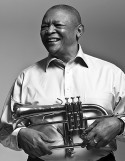With the arrival of September, the “official plan” for this column was to take a broad view of Toronto’s world music scene, and to look at a major development in the 2010-11 season. But before we get to that, there are two major festivals happening this month that deserve to be addressed in detail.
First out of the gate is Ashkenaz, Toronto’s biennial celebration of Jewish culture, which has just started and runs until September 6. Strictly speaking, the Ashkenazim are the Yiddish-speaking people of Eastern Europe – but the festival is much broader than that, and encompasses Jewish arts throughout the world.
Most Ashkenaz events take place at Harbourfront Centre – although there are also concerts at the Lula Lounge (1585 Dundas St. W.) and Caplansky’s Delicatessen (356 College St.). Not surprisingly, klezmer music is well represented: for instance, on September 5 there’s a Community Klezmer Showcase (1:00 on the Redpath Stage) and a cleverly named group from Italy called Klezmerata Fiorentina (2:30 in the Brigantine Room). The following day you can hear local klez clarinetist Martin Van De Ven and accordionist Sasha Luminsky (5:00 on the Lakeside Terrace). And there’s lots more.
But, as I said, Ashkenaz isn’t just about East European culture. On September 4 at 7:00 Flory Jagoda appears at the Enwave Theatre for a rare performance of Ladino songs. Later that evening, at 11:00 in the Brigantine Room, there’s a Sephardic and Mizrachi Cabaret. For those who like musical styles blended together, there’s David Buchbinder’s “Odessa/Havana” (September 5 at 7:00 in the Brigantine room), which brings together Yiddish and Afro-Cuban influences. And for those who like musical categories bent completely out of shape, check out Balkan Beatbox (September 5 at 9:30pm on the Sirius Stage), billed as “Balkan, funk, hip-hop, Middle-Eastern, reggae, and Sephardic music.” The selections above just scratch the surface. For more information go to www.ashkenazfestival.com.
Beginning later in the month, on September 23, and running to October 3, Small World Music presents its own Music Festival: 10 days of performances in venues throughout Toronto. It’s a musical tour of the world, featuring everything from folksongs from the Republic of Georgia (Darbazi, on September 24 at the Royal Conservatory) to contemporary Ugandan music (Kinobe, on September 29 at the Lula Lounge). There’s a free concert at Word on the Street (September 26 at Queen’s Park), and a “Global Soul” grand finale, featuring musicians from around the world (October 3 at the Isabel Bader Theatre). Again, these concerts just scratch the surface. Complete festival listings may be found at www.smallworldmusic.com.
Now let’s take a look at the big picture. It’s just possible that Toronto’s 2010-11 season will be remembered as the moment at which world music went mainstream. Traditionally, world-music concerts have catered to niche markets and cognoscenti, and have taken place in smaller, low-rent venues. That’s been slowly changing – and it’s about to change a lot more.
Roy Thomson Hall has been a leader in this regard – and this year’s programming at Toronto’s flagship auditorium is no exception. This year there are three big world-music concerts coming to bring some colour to the Grey Lady at King and Simcoe. On October 3 Homay and the Mastan Ensemble bring Iran’s classical music to Toronto; on February 13 there’s an Argentinian music and dance show called “Tango Buenos Aires”; and on February 25 frequent visitors Ladysmith Black Mambazo perform vocal music from South Africa.
When the Sony (formerly Hummingbird, formerly O’Keefe) Centre re-opens this fall, world music will be well represented. “Merchants of Bollywood” opens on November 4, and “Kodo Drummers of Japan” will pound out a performance on March 11.
 Added to these offerings is a major new boost for world music coming from the Royal Conservatory of Music. The RCM’s concert series in Koerner Hall (and sometimes also the smaller Mazzoleni Hall) is now in its second season, and is just bursting with musicians from around the globe. The Conservatory’s world music programming begins on October 16 with Mallorcan singer/songwriter Buika; one week later, South Africa’s Hugh Masekela brings his trumpet to Koerner. And the bleakness of a Toronto November will be brightened, on the 27th of the month, by “New Orleans Nights” with Allen Toussaint, Nicholas Payton and the Joe Krown Trio.
Added to these offerings is a major new boost for world music coming from the Royal Conservatory of Music. The RCM’s concert series in Koerner Hall (and sometimes also the smaller Mazzoleni Hall) is now in its second season, and is just bursting with musicians from around the globe. The Conservatory’s world music programming begins on October 16 with Mallorcan singer/songwriter Buika; one week later, South Africa’s Hugh Masekela brings his trumpet to Koerner. And the bleakness of a Toronto November will be brightened, on the 27th of the month, by “New Orleans Nights” with Allen Toussaint, Nicholas Payton and the Joe Krown Trio.
In the new year, the Conservatory will present Kiran Ahluwalia and Rhythm of Rajasthan (January 22), “Acoustic Africa,” featuring Habib Koité, Oliver Mtukudzi and Afel Bocoum (March 6); and the “rainbow nation” sounds of the Johnny Clegg Band from South Africa (April 13). And further reinforcing the impression that the Conservatory is now the place for world music is Soundstreams Canada, which brings a Brazilian duo – vocalist Monica Salmaso and guitarist Fábio Zanon – to Koerner Hall on April 28.
Do all of the forementioned concerts pass muster as world music? Does Dixieland jazz “count”? If world music is about breaking down boundaries and embracing musical roots, then the boundaries of the genre (if it may be called a genre) are bound to be fuzzy and flexible. Something would be wrong if they weren’t.
Colin Eatock is a Toronto-based composer, writer and managing editor of The WholeNote. Our regular columnist, Karen Ages, returns to World View next month.



